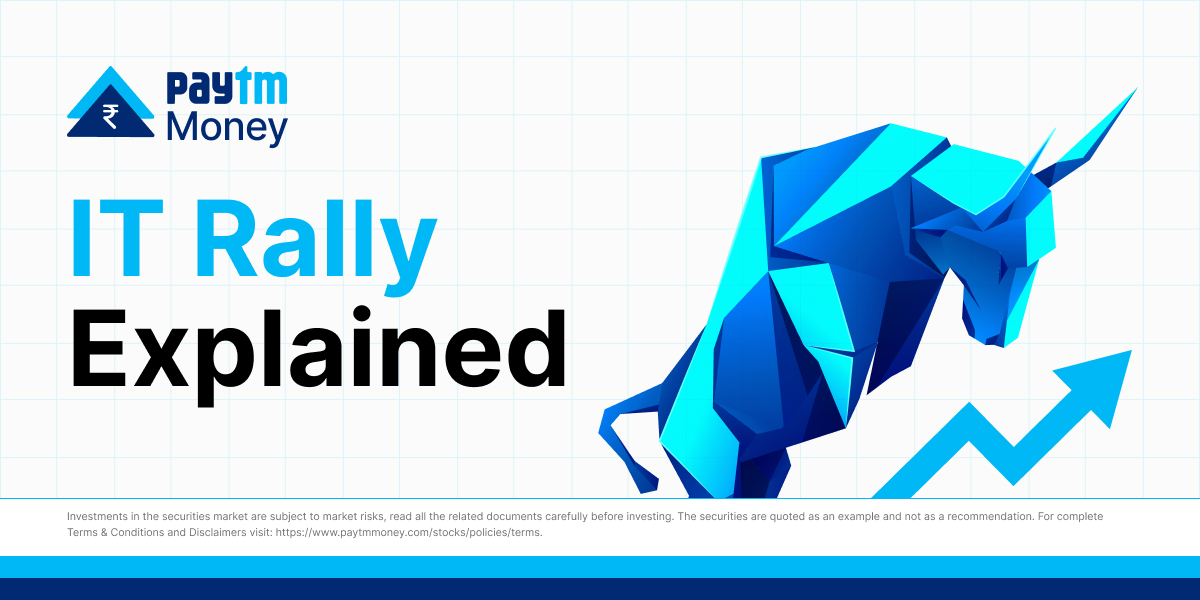Introduction
The defence sector in India is undergoing significant transformation, driven by the government’s push for indigenisation and self-reliance under the “Make in India” initiative. With a substantial increase in the defence budget and a growing focus on modernising the armed forces, investing in defence stocks presents a lucrative opportunity for investors. This blog explores the best defence stocks in India for 2025, highlighting their market performance, strategic initiatives, and future growth prospects.
- Introduction
- Why Invest in Defence Stocks?
- 1. Rising Defence Expenditure
- 2. Government Initiatives
- 3. Strategic Partnerships
- 4. Export Opportunities
- Best Defence Stocks in India 2025
- 1. Hindustan Aeronautics Limited (HAL)
- 2. Bharat Electronics Limited (BEL)
- 3. Bharat Dynamics Limited (BDL)
- 4. Mazagon Dock Shipbuilders Limited
- 5. Cochin Shipyard Limited
- 6. Garden Reach Shipbuilders & Engineers Limited (GRSE)
- 7. Larsen & Toubro (L&T) Defence
- 8. Titagarh Wagons Limited
- 9. Ashok Leyland Defence
- Key Metrics to Evaluate Defence Stocks
- 1. Order Book Size
- 2. Technological Capabilities
- 3. Government Contracts
- 4. Export Potential
- Risks Associated with Defence Stocks
- Conclusion
- FAQ: Best Defence Stocks in India 2025
- 1. Why should I invest in defence stocks in India?
- 2. Which are the top defence stocks to consider in 2025?
- 3. How does the Indian government support the defence sector?
- 4. What are the key metrics to evaluate defence stocks?
- 5. What are the risks associated with investing in defence stocks?
- 6. How is technology influencing the defence sector in India?
- 7. What role do export markets play for Indian defence companies?
- 8. Are defence stocks a good long-term investment?
- 9. How can I start investing in defence stocks in India?
- 10. What is the future outlook for the Indian defence industry?
Why Invest in Defence Stocks?
1. Rising Defence Expenditure
India has one of the most significant defence budgets in the world, which is expected to grow further due to increasing security concerns and geopolitical tensions. This rising expenditure directly benefits companies in the defence sector.
2. Government Initiatives
The Indian government’s “Atmanirbhar Bharat” (self-reliant India) initiative aims to reduce import dependency by promoting domestic defence equipment manufacturing. This policy supports the growth of local defence companies.
3. Strategic Partnerships
Indian defence companies are increasingly partnering with global defence giants to enhance their technological capabilities and expand their product portfolios.
4. Export Opportunities
With the government’s push to position India as a global defence manufacturing hub, domestic companies are exploring international markets, creating additional revenue streams.
Best Defence Stocks in India 2025
1. Hindustan Aeronautics Limited (HAL)
HAL is a premier aerospace and defence company in India that designs and manufactures aircraft, helicopters, and engines.
- Market Capitalization: ₹2996 billion
- Growth Strategy: Expanding product range and collaborating with international firms to enhance capabilities.
- Future Prospects: Increased orders from the Indian armed forces and export opportunities.
2. Bharat Electronics Limited (BEL)
BEL is a leading manufacturer of advanced electronic equipment for the defence forces.
- Market Capitalization: ₹2814 billion
- Innovation: Focus on R&D to develop state-of-the-art defence technologies.
- Strategic Position: Strong order book and continuous flow of contracts from the Indian government.
3. Bharat Dynamics Limited (BDL)
BDL is a prominent player in producing guided missile systems and allied defence equipment.
- Market Capitalization: ₹568 billion
- Strategic Initiatives: Expanding missile production capacity and exploring new markets.
- Growth Potential: Benefiting from increased defence spending and indigenous missile programs.
4. Mazagon Dock Shipbuilders Limited
Mazagon Dock is India’s leading shipyard, specialising in constructing warships and submarines.
- Market Capitalization: ₹1106 billion
- Future Outlook: Long-term contracts with the Indian Navy and plans for diversification into commercial shipbuilding.
- Competitive Edge: Expertise in complex shipbuilding projects.
5. Cochin Shipyard Limited
Cochin Shipyard is a major shipbuilding and maintenance facility catering to the defence and commercial sectors.
- Market Capitalization: ₹ 441 billion
- Expansion Plans: Enhancing shipbuilding capacity and entering into new defence-related projects.
- Market Strength: Established relationships with the Indian Navy and Coast Guard.
6. Garden Reach Shipbuilders & Engineers Limited (GRSE)
GRSE is a leading shipbuilding company serving the Indian Navy and Coast Guard.
- Market Capitalization: ₹ 295 billion
- Strategic Focus: Diversification into new defence technologies and partnerships with global players.
- Growth Strategy: Expansion of product offerings includes advanced patrol vessels and warships.
7. Larsen & Toubro (L&T) Defence
L&T Defence is a Larsen & Toubro division specialising in defence engineering, manufacturing, and systems integration.
- Market Capitalization: ₹1,000 billion (Parent company)
- Innovation: Development of advanced weapon systems and defence infrastructure projects.
- Strategic Edge: Strong engineering capabilities and a diverse defence portfolio.
8. Titagarh Wagons Limited
Titagarh Wagons has diversified into the defence sector, focusing on manufacturing defence equipment and vehicles.
- Market Capitalization: ₹108 billion
- Strategic Expansion: Increasing production of defence-related products, including armoured vehicles.
- Future Growth: Plans to capitalise on government defence procurement policies.
9. Ashok Leyland Defence
Ashok Leyland Defence is a subsidiary of Ashok Leyland, which manufactures vehicles for military use.
- Market Capitalization: ₹700 billion (Parent company)
- Product Range: A wide array of military vehicles, including transport trucks and armoured vehicles.
- Strategic Initiatives: Expanding product lines and entering new defence segments.
Key Metrics to Evaluate Defence Stocks
1. Order Book Size
A robust order book indicates strong future revenue streams and the company’s ability to secure long-term contracts.
2. Technological Capabilities
Advanced technological capabilities are crucial for defence companies to stay competitive and meet the evolving needs of the armed forces.
3. Government Contracts
A steady flow of government contracts is vital for the growth and stability of defence companies.
4. Export Potential
Tapping into international markets can significantly boost a company’s revenue and diversify its income sources.
Risks Associated with Defence Stocks
- Regulatory Risks: Changes in government policies and defence procurement rules can impact business operations.
- Project Delays: Delays in project execution can affect revenue recognition and profitability.
- Geopolitical Risks: The defence sector is susceptible to geopolitical tensions, which can lead to sudden fluctuations in demand.
Conclusion
The Indian defence sector is poised for substantial growth, supported by government initiatives, increasing defence budgets, and technological advancements. Companies like Hindustan Aeronautics Limited, Bharat Electronics Limited, and Bharat Dynamics Limited are well-positioned to capitalise on these opportunities. By investing in India’s best defence stocks, investors can benefit from the sector’s growth while contributing to the nation’s self-reliance in defence. Evaluating key metrics such as order book size, technological capabilities, and government contracts will help make informed investment decisions for 2025 and beyond.
FAQ: Best Defence Stocks in India 2025
1. Why should I invest in defence stocks in India?
Investing in defence stocks in India is appealing due to the growing defence budget, government initiatives promoting indigenisation, strategic partnerships with global companies, and the rising demand for defence equipment domestically and internationally.
2. Which are the top defence stocks to consider in 2025?
Some of the top defence stocks to consider in 2025 include Hindustan Aeronautics Limited (HAL), Bharat Electronics Limited (BEL), Bharat Dynamics Limited (BDL), Mazagon Dock Shipbuilders Limited, and Cochin Shipyard Limited.
3. How does the Indian government support the defence sector?
The Indian government supports the defence sector through initiatives like “Atmanirbhar Bharat” and “Make in India,” aiming to boost domestic manufacturing and reduce import dependency. The government also provides long-term defence procurement contracts to local companies.
4. What are the key metrics to evaluate defence stocks?
Key metrics to evaluate defence stocks include order book size, technological capabilities, government contracts, export potential, and financial performance indicators such as revenue growth and profit margins.
5. What are the risks associated with investing in defence stocks?
Risks include regulatory changes, project delays, geopolitical tensions, and fluctuations in defence spending, all of which can impact the profitability and stability of defence companies.
6. How is technology influencing the defence sector in India?
Technology plays a crucial role in the defence sector, with companies investing in research and development to create advanced defence systems, including missiles, electronic warfare equipment, and modern warships.
7. What role do export markets play for Indian defence companies?
Export markets are becoming increasingly crucial for Indian defence companies as they diversify their revenue streams and leverage government policies to make India a global hub for defence manufacturing.
8. Are defence stocks a good long-term investment?
Defence stocks can be a good long-term investment, especially for companies with strong order books, robust technological capabilities, and a diversified product portfolio that meets domestic and international demand.
9. How can I start investing in defence stocks in India?
To start investing in defence stocks in India, you must open a brokerage account, conduct thorough research on the companies, evaluate their financial health and prospects, and consider consulting with a financial advisor.
10. What is the future outlook for the Indian defence industry?
The future outlook for the Indian defence industry is optimistic, driven by increasing defence expenditure, a push for indigenisation, technological advancements, and rising export opportunities.
Disclaimer : Investments in the securities market are subject to market risks, read all the related documents carefully before investing. Registration granted by SEBI, enlistment with BSE and certification from NISM in no way guarantee performance of the Research Analyst or provide any assurance of returns to investors. Paytm Money Ltd SEBI Reg No. Broking – INZ000240532, Depository Participant – IN – DP – 416 – 2019, Depository Participant Number: CDSL – 12088800, NSE (90165), BSE (6707), SEBI reg No. Research Analyst – INH000020086. Regd Office: 136, 1st Floor, Devika Tower, Nehru Place, Delhi – 110019. For complete details, please visit ; https://www.paytmmoney.com “






